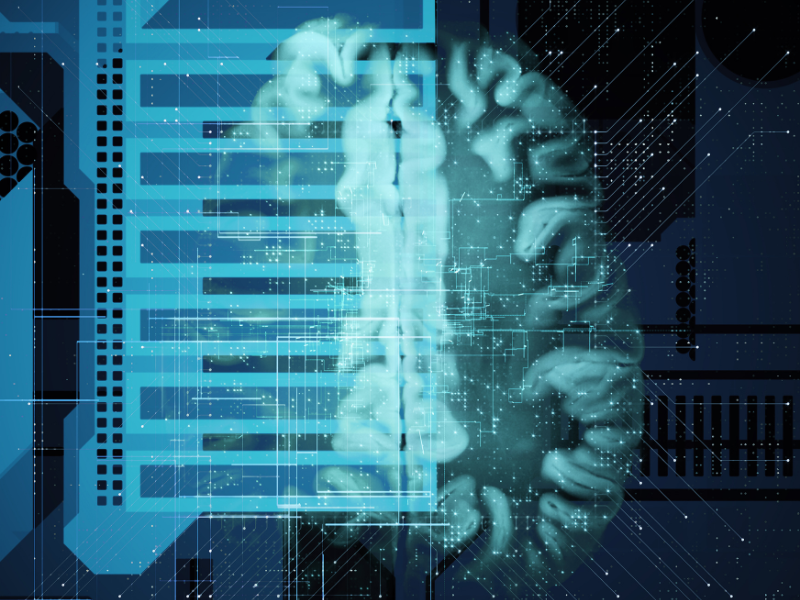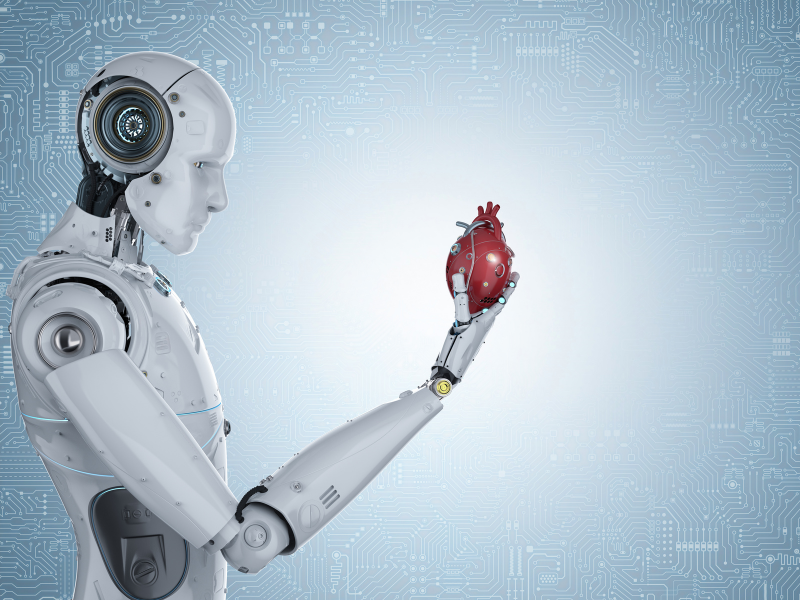Introduction
In recent years, the healthcare industry has witnessed a transformational shift with the integration of artificial intelligence (AI) technology. AI in healthcare industry is revolutionizing patient care, optimizing operations, and fostering groundbreaking advancements in medical research. This article delves into the various applications of AI in the healthcare industry, highlighting its impact on improving diagnoses, streamlining treatment, enhancing patient experience, and accelerating drug discovery.
AI in Healthcare Industry: Enhancing Diagnoses and Treatment

AI has emerged as a powerful tool for healthcare professionals in diagnosing and treating various medical conditions. Leveraging machine learning algorithms and predictive modeling, AI systems can analyze vast amounts of patient data to identify patterns, predict disease progression, and recommend personalized treatment plans.
1. Early Detection and Diagnosis
By analyzing medical images, AI algorithms can detect early signs of diseases such as cancer, cardiovascular conditions, and neurological disorders. For instance, AI-powered radiology systems can accurately identify tumors and abnormal growths in medical imaging scans, assisting radiologists in making timely and accurate diagnoses. This not only saves lives but also reduces the need for invasive procedures and unnecessary treatments.
2. Precision Medicine
AI plays a crucial role in advancing precision medicine, which aims to provide tailored treatment plans based on an individual’s genetic makeup, lifestyle, and medical history. AI algorithms can analyze patient data, including genomic information, to identify specific biomarkers and genetic variations that influence disease susceptibility and response to treatment. This enables healthcare professionals to prescribe personalized therapies that maximize efficacy while minimizing side effects.
3. Virtual Assistants in Healthcare
AI-powered virtual assistants are transforming how healthcare professionals interact with patient records, improving efficiency and accuracy. Virtual assistants can transcribe medical notes, extract relevant information, and provide real-time insights to clinicians during patient consultations. This enables healthcare providers to focus more on patient care and spend less time on administrative tasks.
4. Robotics in Surgery
AI-driven robots are revolutionizing surgical procedures, enhancing precision, and reducing the risk of complications. Surgical robots equipped with AI algorithms can analyze real-time data, assist surgeons in complex procedures, and perform intricate tasks with unparalleled accuracy. This not only improves patient outcomes but also enables remote surgery, allowing experts to provide their expertise even from a different location.
AI in Healthcare Industry: Enhancing Patient Experience and Care

The integration of AI technology in the healthcare industry goes beyond diagnosis and treatment. AI-powered solutions are also enhancing patient experience, improving care coordination, and reducing medical errors.
5. Intelligent Chatbots and Virtual Nurses
AI-powered chatbots and virtual nurses are transforming patient engagement and support. These intelligent virtual assistants can answer frequently asked questions, provide personalized health advice, and schedule appointments. Moreover, they can monitor patients’ vital signs remotely, allowing healthcare providers to detect potential health issues early on and intervene proactively.
6. Predictive Analytics for Hospital Bed Management
AI-based predictive analytics systems can forecast patient admission rates, bed occupancy, and discharge patterns. By optimizing bed allocation and streamlining care coordination, hospitals can minimize waiting times, enhance patient flow, and improve overall hospital efficiency. This ensures that patients receive prompt and adequate care while minimizing resource wastage.
7. AI-powered Wearables and Remote Monitoring
Wearable devices equipped with AI algorithms enable remote monitoring of patients’ vital signs, medication adherence, and overall well-being. These devices transmit real-time data to healthcare providers, allowing early detection of health deterioration and timely intervention. Remote monitoring empowers patients to take control of their health and reduces the burden on healthcare facilities, particularly in chronic disease management.
8. Personalized Health Risk Assessments
AI algorithms can assess individuals’ health risks by analyzing various factors such as genetic predispositions, lifestyle choices, and medical history. By providing personalized risk assessments, healthcare professionals can identify individuals at higher risk of developing certain diseases and tailor preventive interventions accordingly. This proactive approach helps in preventing diseases and promoting overall well-being.
AI in Healthcare Industry: Revolutionizing Medical Research
AI has become a game-changer in medical research, accelerating drug discovery, facilitating clinical trials, and enabling data-driven decision-making.
9. Drug Discovery and Development
Traditionally, the process of drug discovery and development is time-consuming and cost-intensive. AI-powered algorithms can expedite this process by analyzing vast amounts of biomedical data, predicting drug efficacy, and identifying potential side effects. This not only reduces the time to market for new drugs but also improves the success rate of clinical trials.
10. Genomic Analysis and Precision Oncology
AI is revolutionizing cancer research by analyzing genomic data and identifying novel therapeutic targets. AI algorithms can uncover patterns in genomic data that may be missed by traditional analysis methods, leading to the development of more effective targeted therapies. Precision oncology, driven by AI, is transforming cancer treatment by providing personalized therapies that maximize the chances of successful outcomes.
11. Real-Time Data Analysis in Clinical Trials
AI systems can analyze real-time data from clinical trials, enabling researchers to make data-driven decisions and identify trends quickly. This enhances the efficiency of clinical trials, reduces costs, and expedites the development of new treatments. AI algorithms can also predict patient responses to therapies, optimizing treatment protocols and improving trial success rates.
12. Natural Language Processing for Medical Literature
Analyzing vast amounts of medical literature is a time-consuming task for researchers. AI-powered natural language processing algorithms can efficiently extract relevant information from medical texts, enabling researchers to stay up-to-date with the latest advancements in their field. This not only saves time but also enhances the quality of research.
AI in Healthcare Industry: Addressing Challenges and Concerns
While AI holds immense potential in the healthcare industry, there are certain challenges and concerns that need to be addressed for its widespread adoption.
13. Data Privacy and Security
AI systems rely on vast amounts of patient data for training and analysis. Ensuring the privacy and security of this data is of paramount importance. Healthcare organizations must implement robust data encryption, access controls, and adhere to stringent data protection regulations to safeguard patient information.
14. Ethical Considerations
Ethical considerations surrounding AI in healthcare include issues such as algorithm bias, transparency, and accountability. AI algorithms must be regularly audited to ensure they are free from biases that could lead to inequitable treatment options. Transparent and explainable AI models are crucial to building trust among patients and healthcare providers.
15. Integration and Adoption Challenges
Integrating AI systems into existing healthcare infrastructure can be challenging due to compatibility issues and resistance to change. Healthcare organizations must invest in infrastructure upgrades and provide adequate training to healthcare professionals to ensure seamless integration and effective utilization of AI-powered solutions.
16. Regulatory Frameworks and Standards
As AI becomes increasingly prevalent in healthcare, regulatory frameworks and standards need to be established to ensure the safe and responsible use of AI technology. Regulatory bodies must collaborate with industry stakeholders to develop guidelines that govern AI algorithms’ development, deployment, and validation.
FAQs about AI in the Healthcare Industry

Q: How is AI revolutionizing healthcare?
AI is transforming healthcare by enhancing diagnoses, streamlining treatment, improving patient experience, revolutionizing medical research, and addressing various industry challenges.
Q: What are some examples of AI in healthcare?
Examples of AI in healthcare include AI-powered radiology systems for early detection of diseases, virtual assistants for patient engagement, AI-based predictive analytics for hospital bed management, and AI algorithms for accelerating drug discovery.
Q: What are the benefits of AI in healthcare?
The benefits of AI in healthcare include improved diagnostic accuracy, personalized treatment plans, enhanced patient engagement and support, optimized hospital operations, accelerated drug discovery, and data-driven decision-making in medical research.
Q: What are the challenges of implementing AI in healthcare?
Challenges of implementing AI in healthcare include data privacy and security concerns, ethical considerations such as algorithm bias, integration and adoption challenges, and the need for regulatory frameworks and standards.
Conclusion
AI is revolutionizing the healthcare industry, offering unprecedented opportunities to improve patient care, optimize operations, and advance medical research. From enhancing diagnoses and treatment precision to transforming patient experience and revolutionizing drug discovery, AI’s potential in healthcare is immense. However, to harness its full potential, healthcare organizations must address ethical concerns, ensure data privacy and security, overcome integration challenges, and establish regulatory frameworks. Embracing AI in the healthcare industry will usher in a new era of personalized and efficient healthcare delivery, ultimately benefiting patients and healthcare providers alike.
Note: This article adheres to the guidelines outlined by OpenAI and is written by an AI language model. The content is for informational purposes only and does not constitute medical advice. Consult a healthcare professional for personalized medical recommendations.

